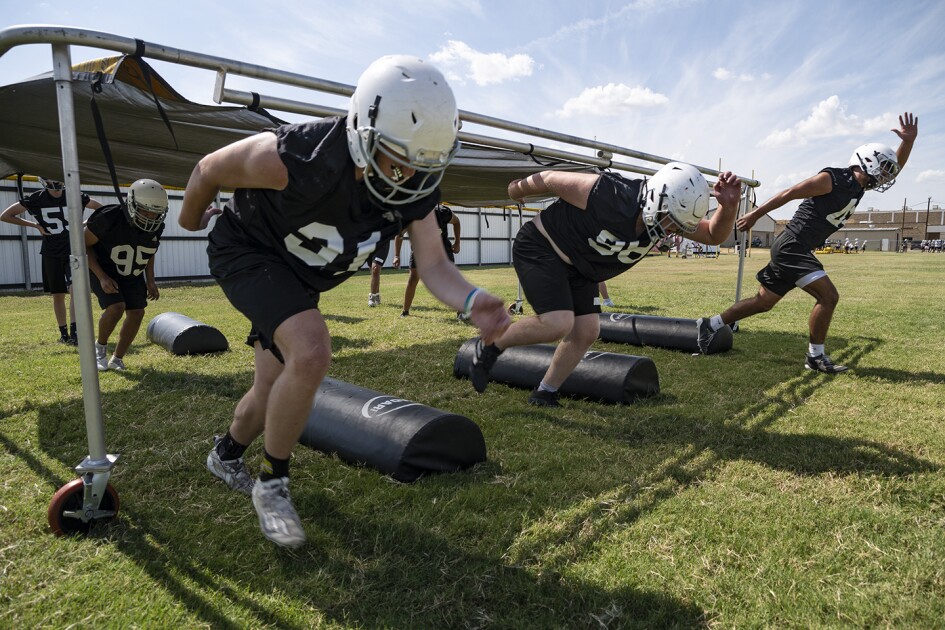As school communities around the country shutter their doors indefinitely to curb the spread of the new coronavirus, a great deal of uncertainty and unfinished business remains. Chief among this list of outstanding to-dos: hiring teachers for the next school year.
“April is peak hiring time,” said Kelly Coash-Johnson, executive director of American Association of School Personnel Administrators (AASPA).
But this year, it’s safe to say that few prospective job seekers and employers will be engaging in de rigueur interviewing practices, like shaking hands and making in-person eye contact. Already, 95 percent of the nation’s career fairs for school personnel have been canceled, reports AASPA’s Coash-Johnson.
As traditional hiring practices all but grind to a halt, the question of what will replace them in the coming months looms large. The response to that question—put to school districts and educational hiring professionals days or even hours after their schools closed—varied widely.
There are also bigger questions lurking about how the economic fallout from the coronavirus will impact hiring overall. Will districts have the resources to bring new employees on board for the fall?
For some, hiring focus on hiatus
Some say that, right now, hiring is not even on the radar.
“Our staff who work in supporting districts in educator recruitment said they have not discussed this question with districts yet so we don’t have a lot of answers,” said Alison May, a spokesperson for the Delaware Department of Education.
She emphasized that Delaware educators are prioritizing planning and preparing to support students and educators in the event schools are closed for an extended period of time.
Others indicated that their school systems, too, were focusing exclusively on trying to get ahead of their most immediate and pressing priority: serving their student population.
“Early this month we called on schools to start creating closure plans that focused on providing home instruction to students, ensuring equitable access to all children, and addressing food security for students who receive free and reduced lunch. Those issues have taken center stage in recent days,” Michael Yaple, spokesperson for the New Jersey Department of Education, wrote in an email. New Jersey schools closed on Wednesday, March 18.
Hiring may not be on the minds of most school officials at the moment, but some say it remains part of their immediate plan of action for spring.
“We will still be actively looking for educators to join our team,” said Xavier Andrews, a spokesperson for Boston Public Schools, adding that, right now, the school district has no plans to freeze hiring.
He did, however, provide a caveat: “As things are changing minute to minute, it’s not the best time for us to make bold affirmative statements.”
Ramping up alternative hiring practices
As hiring appears to have taken a backseat at many school districts, some hiring professionals note that they’re prepared to ramp up alternate hiring practices. Tim Alexander, who heads up human resources for Minnetonka Public Schools in Minnesota, doesn’t seem fazed by the sudden and unanticipated closure of their schools. He says they’ve been doing Skype interviews for as long as the online platform has existed.
“Virtually every single year, we’ll have a handful of candidates we’ll choose by Skype,” Alexander said.
The use of online interviewing enables hiring professionals with Minnetonka Public Schools to connect to teaching candidates, especially those applying to teach in the district’s long-standing immersion program, which features Chinese and Spanish and begins at the elementary school level. Alexander says the district also conducts online interviews to accommodate candidates’ tight schedules.
Downplaying the unique nature of online interviewing, Alexander says he follows the same format whether he’s interviewing someone in-person or on Skype, and that he asks the same set of questions. “The only difference is that the candidate’s not physically present,” he said.
But he does draw a distinction at phone interviews, saying he never hires based on phone interviews only. “We want to be able to see their faces,” Alexander noted.
Like Minnetonka Public Schools’ Alexander, hiring professionals at Teach for America appear undaunted by what may become the new, albeit temporary, hiring “normal” of online interviewing. The nonprofit, which hires candidates to commit to teaching a minimum of two years in an under-resourced U.S. public school and is known for its selective recruitment process, isn’t new to online interviewing.
The nonprofit began conducting some of its interviews virtually in 2012. That practice allowed their hiring professionals to connect primarily with candidates living abroad, whether as students or enlisted military personnel, said Marissa Ring, Teach for America’s chief of staff. The nonprofit has steadily increased its use of online interviewing over time, says Ring, and as the coronavirus epidemic plays out around the globe, Teach for America plans to conduct all interviews virtually for an indefinite time period.
While Teach for America has eight years of virtual interview experience to draw on, Ring acknowledges that it doesn’t necessarily come second nature to new users. “It can be daunting to do a virtual interview if you haven’t done one before,” Ring said.
With that in mind, Teach for America provides specific guidance to teaching candidates on the online interview process, making sure they know how to log into and practice navigating Zoom, the video conferencing system the nonprofit uses.
Teaching candidates aren’t the only ones who can benefit from honing their online interviewing skills during these days of social distancing. Says Minnetonka Public Schools’ Alexander: “Principals are going to have a lot of time [due to school closures] to get acclimated to online interviewing. Why not focus that energy on making sure we hire the very best teachers we can for the fall?”









